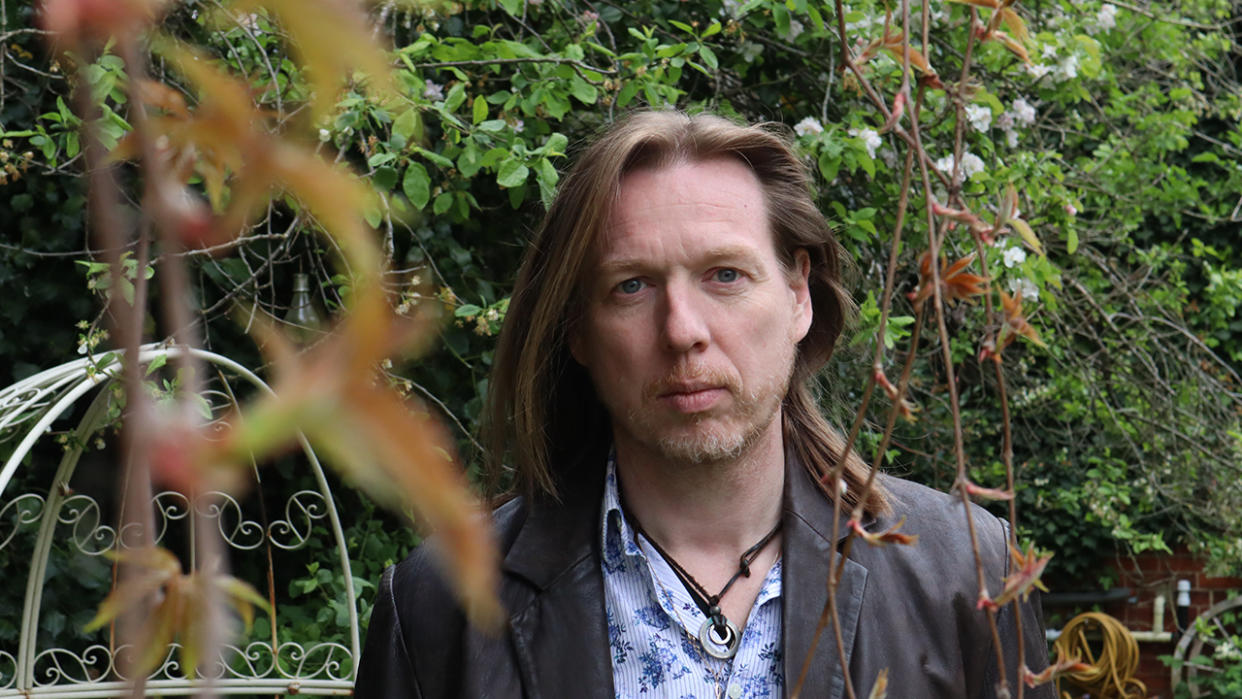Oliver Wakeman’s Celtic-themed Anam Cara began in 2002

Oliver Wakeman teamed up with vocalist Hayley Griffiths and Nightwish’s Troy Donockley for his first solo album in almost 20 years.
Released today (May 10) via Spirit Of Unicorn Music, the Celtic-inspired Anam Cara is the first LP to be billed under the keyboard player and multi-instrumentalist’s name since 2005’s Mother’s Ruin.
It follows collaborations with the likes of Gordon Giltrap, Rodney Matthews (on the Trinity project) and Arena/Pendragon keyboard player Clive Nolan, as well as a stint in Yes between 2008 and 2011.
“I see it as a sort of spiritual sequel to The Three Ages Of Magick [his 2001 collaboration with Yes guitarist Steve Howe], even though it’s a completely different type of record,” Wakeman tells Prog. “On that one I used whistles and a violinist and a uilleann pipe player, and it worked really well. I went back and listened to it when I did the box sets, and it sort of stoked that fire in me to use those instruments again.”
Anam Cara wears its Celtic influences heavily, both musically and in the album title, which roughly translates as ‘soul friend.’ “It’s fitting, because the songs are about interactions between people,” he says. “There’s songs about people being away from each other, about people from the past who are no longer with us; there’s even a song about a love triangle.
“The songs are all little vignettes. It’s not a concept album, but there’s a theme around the idea of the soul friend – someone who is looking for something; a connection.”
Opening track The View From Here dates back to 2002, when it was recorded in a different form with vocalist Rachel Williams (“I’ve completely rewritten parts of it, but the chorus is still recognisable,” says Wakeman). Others are more recent, including the album’s eight-minute centrepiece Marble Arch, the piece that explores a love triangle.
“I’ve basically been writing all these pieces of music over the years – I’d think, ‘Well, that fits that sort of spiritual, Celtic thing, so I’ll save it with all the other songs that are along the same lines,” says Wakeman.
I’d love to go out and play some shows, but if we do the whole record, I’m going to need some whistles and violins and all that stuff
“Then a year or two ago, I listened to them all and thought, ‘Oh, they sound pretty good.’ Then you get into it, and actually you end up rewriting half the stuff!”
Wakeman enlisted vocalist Hayley Griffiths after being introduced to her music via a mutual friend. “She’s done rock stuff, she’s done classical stuff, she’s done Riverdance – there’s an incredible versatility and depth of control to her voice that I needed.”
Other musicians appearing on the album include guitarist and regular Wakeman collaborator Dave Mark Pearce, fellow guitarist Oliver Day and drummer Scott Higham. Donockley provides pipes and whistles.
“I’ve known Troy for God knows how many years, but I thought he’d be too busy with Nightwish to do this,” says Wakeman. “But I emailed him, and he came straight back and said, ‘Absolutely love to do it.’”
Griffiths was part of Wakeman’s band at the Winter’s End festival in April, where they debuted songs from the record. “After that, I’d love to go out and play some shows specifically around Anam Cara,” he reports. “But if we do the whole record, I’m really going to need some whistles and violins and all that stuff.”
Beyond that, Wakeman has plans to release a sequel to Mother’s Ruin. “I’ve written it,” he says. “I realised that 2025 will be the 20th anniversary of that record, so we’ve been talking about recording the follow-up and going out and playing both.”
